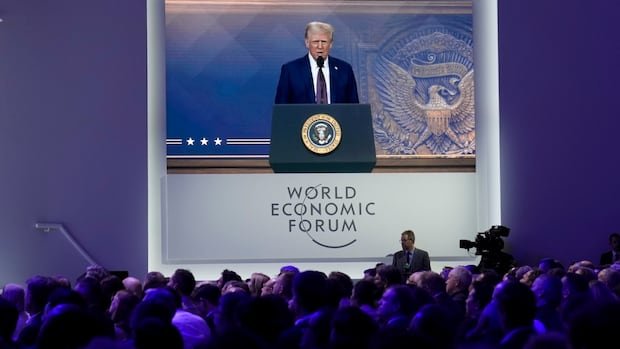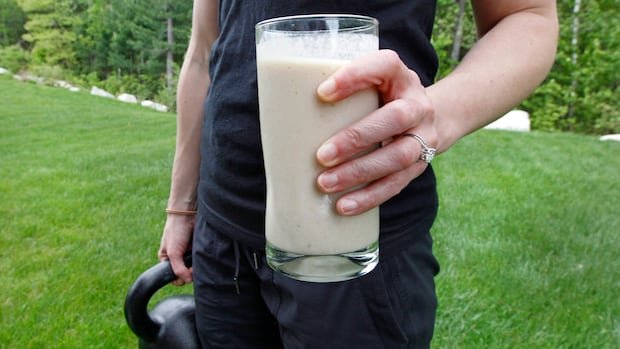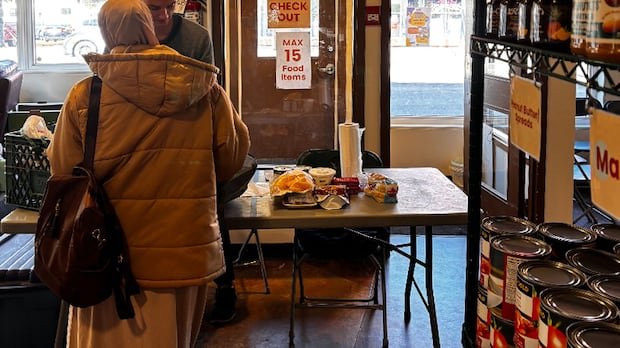As Ottawa vows to retaliate against US trade tariffs, US President Donald Trump has dealt Canada a new blow.
Trump says the United States does not need imports of oil, gas, vehicles or lumber from its northern allies.
Trump made the comments Thursday, in his first address to world leaders since returning to the White House for his second term.
During his virtual speech at the World Economic Forum in Davos, Switzerland, Trump was firm in his threat of tariffs while sharing harsh criticism of Canada.
“Difficult to deal with”
“Canada has been very difficult to deal with over the years and it’s not fair that we have a $200 billion or $250 billion deficit,” Trump said.
“We don’t need them to make our cars. And they make a lot of them. We don’t need their wood, because we have our own forests.
“We don’t need your oil or gas. We have more than anyone else.”
The comments were the first in Trump’s four days in office to global political and business leaders at a time when global markets and Canadian political leaders remain nervous about his plans to impose sweeping trade sanctions on all imported goods.
US President Donald Trump, speaking by video to people gathered at the World Economic Forum in Davos, Switzerland, argued that other countries, including Canada, are taking advantage of the United States. He also repeated claims that the United States doesn’t need anything from Canada.
Trump characterized the trade relationship between the two nations as contentious and unfair and blamed Canada’s import policies for the United States’ goods trade deficit.
During his speech from the White House, Trump reflected on his increasingly protectionist plans for the United States, suggesting that Canada has unfairly benefited from its trade relations with the United States.
“We are going to demand respect from other nations,” Trump said.
“We have a tremendous deficit with Canada. We’re not going to have that anywhere. We can’t do it.”
Trump listed the rapid changes he had made since his inauguration on Monday and promised to reduce inflation with a combination of tariffs, deregulation and tax cuts. He said producers must make their products in the United States or face tariffs.
Trump’s comments sparked widespread criticism among political leaders north of the border, many of whom remain divided over how best to fend off the threat of broad trade tariffs.
Alberta responds
The comments did not alter Alberta Premier Danielle Smith’s call for diplomacy rather than public threats of retaliation against the United States.
Smith returns from a five-day mission to Washington, DC, and a one-on-one meeting with Trump at his Florida home.
A statement from Smith’s office reiterated that the premier believes Alberta’s energy sector holds the key to ongoing negotiations, that cross-border trade within the oil and gas sectors is critical to “promoting America’s energy dominance.” northern”.
“A U.S. tariff will hurt American and Canadian consumers, and we should focus on developing our trade relationship through diplomacy, not threats,” the statement read. “In a negotiation, both sides will say all kinds of things and use different tactics.”
Jason Kenney, premier of Alberta from 2019 to 2022, described Trump’s comments on closing the border to oil and gas exports as “peculiar,” given that one-fifth of the crude oil refined in the United States comes from Canada. . American refiners buy Canadian crude oil at a low price and export their refined products for a profit.
He noted that Trump previously touted approval of major cross-border energy projects, favoring construction of the Keystone XL pipeline, which would have transported oil from Alberta to Nebraska.
Kenney said it’s unfortunate that Trump remains “obsessed” with targeting a traditional trade ally and introducing policies that would be harmful to American consumers. The president’s strategy “just doesn’t add up,” Kenney said.
Diplomatic differences
Kenney also questioned how Trump would fulfill his promise to lower gas prices by cutting off an affordable source of crude oil.
“A key line in the [Trump] “The inaugural address was to ‘drill, make little drills’ to increase the American energy supply,” he said.
“Well, they’re going to have to drill a lot to replace the four million barrels a day that come from Canada.”
Kenney said Canada should not rule out retaliatory measures against Trump’s new tariffs, but urged federal and provincial leaders on this side of the border to remain tactful as talks continue.
Modernizing U.S. refineries, which are now designed to process heavy crude oil from the tar sands, “doesn’t make economic sense,” said Max Fawcett, senior columnist for the National Observer, a Canadian news publication that focuses on climate change reporting. .
- This Sunday, Cross Country Checkup asks: From vacations to shopping to business…how is the Trump presidency changing your plans? What is your plan B? Fill out this form and you can appear on the show or have your comment read on air.
In 2023, 97 per cent of Canada’s growing crude oil export volume was destined for the United States, according to the Canadian Energy Regulator.
Fawcett is struck by the contrasting approaches Prime Minister Smith is taking toward the federal government’s environmental policies and their impact on the oil industry, and the Trump administration’s open intention to divest from Canadian oil, he said.
“The threat is not coming from Ottawa. In fact, it is coming from Washington, and our prime minister may start turning south instead of east,” Fawcett said.
Trump’s impetus may come from his long-held belief that Canadian oil is inferior to the American product, he said.
“We’ve seen time and time again that people try to incorporate facts into Trump’s sentiments,” he said. “They don’t tend to win.”
Smith’s contrary strategic bet
Trump’s protectionist turn on oil likely surprised Smith, who anticipated a cooperative ally in the White House, said Janet Brown, a Calgary-based pollster and political commentator.
He compared the first week of Trump’s second presidency to the early days of the COVID-19 pandemic, when Albertans and Canadians were anxiously waiting to see what would happen next.
“We are all looking at the February 1 deadline. [for the U.S. to impose tariffs]”said Brown. “You have to hope for the best and prepare for the worst. But any politician wouldn’t be doing their job if they didn’t take Trump seriously.”
Smith’s political background may be leading her to take a more diplomatic approach than that of the federal government and other Canadian prime ministers, Brown said.
The Alberta NDP tried to label Smith “dangerous” and “crazy” in the 2023 election campaign, but that didn’t stop her, and Smith knows that approach won’t stop Trump, she said.
“Even when he ran for leadership here in Alberta for the [United Conservative Party]He took a risky strategy, but that risky strategy allowed him to win big,” Brown said.
“She thinks that if she’s the only person who says something different, her past would tell her that’s a good position to be in.”









